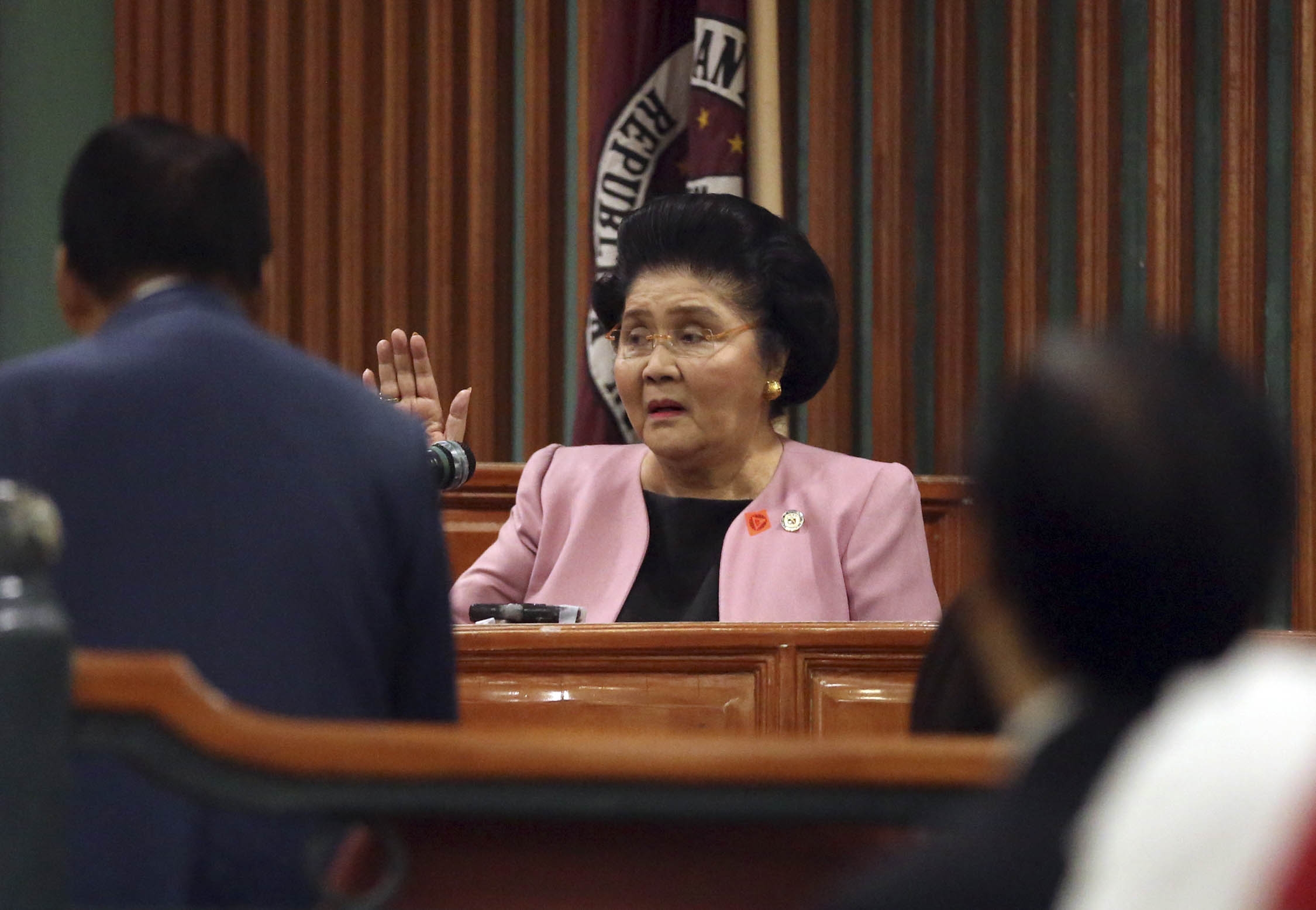Imelda Marcos posts bail, insists on taking case directly to SC
Former first lady Imelda Marcos posted a P300,000 bail on Wednesday and said she would challenge her graft conviction in the Supreme Court, instead of appealing the verdict first in the Sandiganbayan.
Marcos’ lawyer posted the bail and paid an additional P4,700 in legal fees on her behalf.
She was no longer required to personally appear in the antigraft court to post bail, which allows her to retain her temporary freedom while the verdict is not yet final and executory.
This was because Marcos, on Nov. 16, already placed herself within the court’s reach when she personally posted a separate P150,000 bail, pending the resolution of her “motion for leave to avail of postconviction remedies.”
On Nov. 26, Marcos filed a notice of appeal informing the Sandiganbayan of her plan to take the case to the Supreme Court and skip the step of filing a motion for reconsideration.
Premature notice
But the antigraft court did not take action on the premature notice, as it had not yet resolved her motion for leave under Rule 120 of the Rules of Court.
Rule 120 required Marcos to justify her absence during the Nov. 9 promulgation of her verdict so she would be able to post bail and recover her right to appeal.
After the court found reason to extend leniency—because of her old age and supposedly frail health—it granted the motion on Nov. 28.
This paved the way for Marcos to try filing the notice of appeal again.
7 counts of graft
In the said notice, she reiterated that “her conviction is contrary to facts, law and jurisprudence” and requested that the records of the 27-year-old case be forwarded to the Supreme Court.
Marcos was found guilty of seven counts of graft for creating Swiss foundations to stash about $200 million cash while serving as an assemblywoman, minister of human settlements and Metro Manila governor.
This was a prohibited transaction under Art. VIII, Sec. 11, and Art. IX, Sec. 8 of the 1973 Constitution.
